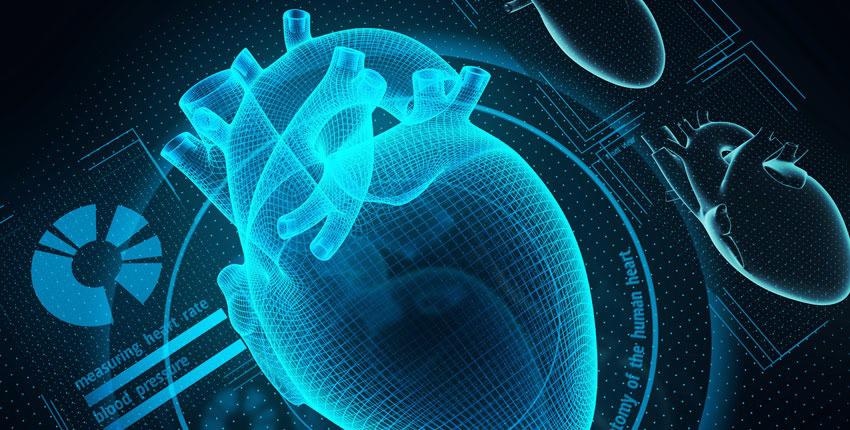
Image Credit: laremenko/iStock/Getty Images Plus.
Patients may not have symptoms in the initial stages, and when professionals study cardiac biopsies to identify the condition, they may not always agree on the degree and intensity of the rejection.
The scientists tested CRANE’s effectiveness on heart-tissue samples produced by patients from 3 different nationalities in a pilot trial, finding that it could assist cardiac doctors in identifying rejection more precisely and reduce examination time.
The team’s findings show that employing this strategy in larger clinical trials is feasible and promising. The study was published in Nature Medicine.
Our retrospective pilot study demonstrated that combining artificial intelligence and human intelligence can improve expert agreement and reduce the time needed to evaluate biopsies.
Faisal Mahmood, Study Senior Author and Assistant Professor, Pathology, Brigham and Women’s Hospital, Harvard Medical School
Mahmood also heads the Mahmood Lab in the Department of Pathology at Brigham and Women’s Hospital. “Our results set the stage for large-scale clinical trials to establish the utility of AI models for improving heart transplant outcomes,” he says.
Heart biopsies are frequently used to diagnose and evaluate the severity of organ rejection in individuals who have had a heart transplant. Experts typically disagree on whether the patient is rejecting the heart or the severity of the rejection, according to many studies.
Variation in diagnosis has obvious clinical effects, such as treatment delays, unneeded follow-up biopsies, anxiety, insufficient medication dose, and, ultimately, poor outcomes.
CRANE is intended to be used in conjunction with human expert assessment to help establish an actual diagnosis more quickly, and it can also be utilized in situations where pathology experts are scarce.
Thousands of pathology pictures from over 1,300 heart biopsies from Brigham and Women’s Hospital were used to develop CRANE for identification, subtyping and grading of transplant rejection.
The model was subsequently validated with test biopsies from Brigham and Women’s Hospital as well as other external testing sets from hospitals in Switzerland and Turkey.
The external validation datasets were created to display a high degree of unpredictability as a means of stress-testing the AI model and ensuring that it can operate properly even when faced with a huge number of conflicting signals.
CRANE functioned well in terms of detecting and analyzing rejection, with findings that were comparable to those obtained by traditional methods. When specialists utilized the program, there was less disagreement between them, and the assessment time was cut in half.
The authors stress that the tool’s utility in clinical practice is unknown, and they intend to develop the system further, but the findings show the value of incorporating AI into diagnostics.
Throughout the history of medicine, diagnostic assessments have been largely subjective. But because of the power and assistance of computational tools, that’s beginning to change. The time is right to make a shift by bringing together people with clinical expertise and those with expertise in computational science to develop assistive diagnostic tools.
Faisal Mahmood, Study Senior Author and Assistant Professor, Pathology, Brigham and Women’s Hospital, Harvard Medical School
This work was supported in part by the BWH President’s Fund, National Institute of General Medical Sciences (R35GM138216), a Google Cloud Research Grant, Nvidia GPU Grant Program, internal funds from Brigham and Women’s and Massachusetts General Hospital Pathology, the National Institutes of Health, and the National Library of Medicine Biomedical Informatics and Data Science Research Training Program (T15LM007092).
Furthermore, the National Human Genome Research Institute Ruth L. Kirschstein National Research Service Award Bioinformatics Training Grant (T32HG002295), the National Cancer Institute Ruth L. Kirschstein National Service Award (T32CA251062), and the National Science Foundation Graduate Fellowship were also included with the funding.
Journal Reference:
Ipkova, J., et al. (2022) Deep learning-enabled assessment of cardiac allograft rejection from endomyocardial biopsies. Nature Medicine. doi.org/10.1038/s41591-022-01709-2.